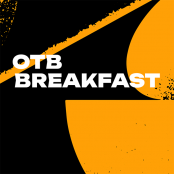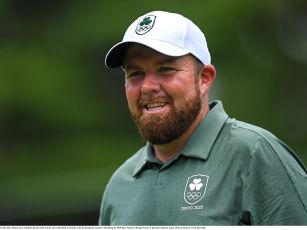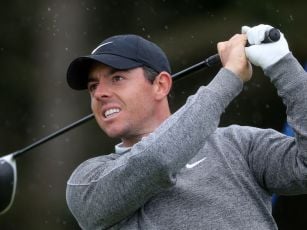It’s been a tough two months for Aisling Daly.
Having discovered a brain injury during a routine scan, the MMA star has had to negotiate her way through conversations with fans and some friends with caution lately.
Knowing that she would eventually announce her retirement from the sport she helped cement into the Irish consciousness, Daly found a way to answer the inquiries about her next fight in the most genuine fashion that she could.
"I felt really bad making up little fibs about it. There are so many people I didn’t reply to that were getting in contact with me asking when I would be fighting again. You know, I’d tell them 'not anytime soon' or 'I’m riddled with injuries'.
"That way I wasn’t lying. This is a brain injury so that falls under that heading too," she laughed.
Back in June 2011, a much smaller Irish MMA community stayed up until the early hours waiting to hear news from Cleveland as 'Ais the Bash' contested her first world title fight. When she arrived at the arena along with John Kavanagh, Daly noticed how images of her opponent Jessica Eye were plastered everywhere. In the middle of the official event program, there was a double page spread about the implications of a win for the devastating striker.
Although she had to avoid the early onslaught of the American, Daly went on to put the first blemish on the powerful striker’s record with a rear naked choke in the second round to become Ireland’s first MMA world champion.
Back home, the community believed that Daly was the person to take the sport to the mainstream. Big sponsors like Paddy Power wanted to back 'The Bash', but without the exposure of the UFC who had yet to bring women's divisions into their fold, opportunities to appeal to a new audience were few and far between.
At that stage, it had already's opponents due to the cost of travel and accommodation. With a lack of female competitors to pit her skills against, Daly would often receive little or no remuneration for her efforts, but it wasn’t about money.
It would be another two and a half years before UFC announced the arrival of the strawweight division. To gain entry to The Ultimate Fighter, UFC’s reality platform that would be used to introduce the new female division to the world, she would have to prove that she could make the weight.
As the Helix exploded in ecstasy around her after her strawweight win over Carla Benitez at Cage Warriors 63, Daly’s celebrations were slightly muted. Having climbed to the top of the flyweight division three years before, it seemed strange to a lot of people that ‘The Bash’ would have to prove anything to potential employers.
"I honestly didn’t know what else I had to do by then. I won the fight and I was probably still questioning whether that would be enough. At that stage, I was one of the best fighters in Europe.
"People used to talk about how young I was when I signed for the UFC, but at that stage, I was physically exhausted. It's not about age in this game, it’s about miles on the clock and I had been around a long time already.
"The thing with the UFC was, I had to compete at 115 lbs because there was only two divisions for women—115 lbs and 135 lbs. I had won a world championship at 125 and I think I would have been a lot more comfortable if that division had been available."
Daly’s body took a long time to recover from her stint on The Ultimate Fighter.
Instead of just getting down to the 115 lbs to register her weight before a fight, the Irish starlet would have to walk around at a maximum of ten pounds over the limit due to the tournament element of the series. At all times, Daly would have to be a couple of Epsom salts baths away from hitting the scales on weight.
The sparring rounds were murderous as the competitors were forced to train with each other. Even after tough sessions, Daly couldn't allow herself to refuel properly for fear of putting on too much weight. After her TKO win over Angela Mangana, Daly came up short against Jessica Penne, which forced her exit from the competition.
Injuries plagued Daly’s tenure under the UFC banner, but she still came away with two wins in three outings under the banner.
Her stellar jiu-jitsu was showcased during her debut win against Alex Chambers and after a loss to Randa Markos, Daly’s legendary performance in Dublin allowed the Irish fans to publicly recognize the feats of the Drimnagh native.

Aisling Daly in action against Ericka Almeida in Dublin's 3Arena in 2015. Image: ©INPHO/Cathal Noonan
The first thing that crosses most peoples’' minds when they lose their jobs is the loss of income. Yet, when Daly heard the news of her brain injury, she was only concerned with losing her competitive outlet.
"I’ve never made a living from fighting. I was always doing stuff on the side. I quit working in Schuh on O’Connell Street to go and compete on The Ultimate Fighter a month before it started.
"Honestly, if they said I could have come back into the same job on the same wages after the tournament I probably would have taken it. Don’t get me wrong you can get big paydays off the UFC too, but just by the time they come around you owe most of the money out already."
It’s cruelly ironic that Daly has been forced from the sport due to a brain injury.
Daly brought Safe MMA to Ireland in 2013, which introduced a minimum safety standard to the Irish MMA. Since the death of Joao Carvalho in April last year, along with the Safe MMA Ireland team, Daly has helped the safety standards in the national sport become the best in the world.
"When I first heard about the brain issue and that I would have to retire, I did think for awhile that I would keep it to myself. I don’t know, I felt that maybe I’d be doing wrong by the sport if I went public with it.
"I didn't want to damage the reputation of the sport. In my head, I was thinking that people would poke fun at the fact that I have been talking about safety in the sport for so long only to end up with a brain injury. All of these things go through your head.
"Eventually I just decided that the best thing for me to do was to talk about it. All sports have their dangers, but I think it’s an amazing thing that I have been flagged and I've been made aware of my situation. We have things in place to stop people who are at risk from competing in Irish MMA and that should be celebrated."
You can’t help but think of how good it would be if every retired fighter left the game in the same shape as Daly.
Healthy, in good spirits, with full use of her body and no audible speech impediment, with the new safety criteria, the possibilities of having stuttering, physically challenged former fighters have slimmed down. As far as Daly's physician is concerned, her brain injury will never have an impact on the way she lives her life.
For Daly, the health scare has only strengthened her resolve to safeguard the sport for future competitors. With the extra time on her hands, Daly hopes to work with the sport’s international governing body, the International Mixed Martial Arts Association, IMMAF.
"I'm genuinely interested in the growth of the sport and moving it in the right direction. I'm definitely interested in helping IMMAF giving the world a better understanding of the sport.
"It’s hard to see myself making a living off that alone, but I still definitely want to be involved in MMA. I don’t care if it takes me doing ten small jobs to make up what I need to get by, once I can still be close to the sport. I’m very interested in the nutrition side of the sport too, so I think my practical experience will help me move into some kind of role with that as well."
On top of her medical advisory work and coaching, Ireland’s first female black belt still wants to be able to compete in grappling events.
"When John heard the news he suggested that I should look at this like the end of ‘The Bash’, and that I should take the time to mourn and grieve for the loss of that alter ego, but I don’t know if I’m ready to do that.
"I don’t know if I'm ready for that kind of finality and I still definitely want to compete in jiu-jitsu.
"I doubt it will light the same fire under me as MMA did, but I think competing is an important thing for me. I've wanted to test my skill set ever since I was a yellow belt in karate as a kid doing katas up and down my hallway.
"I’ve continued my strength and conditioning and I can see the shift already in my visualization. I used to think about throwing out a right hand when I fought MMA, I've just automatically started thinking about jiu-jitsu techniques like arm drags and different things like that since I got the news."

Ireland's Aisling Daly [pink hair] fighting Majanka Lathouwers from Belgium at Cage Rage Contenders, back in 2007. Daly went on to win via submission. Image: ©INPHO/Morgan Treacy
Interestingly, Daly's only fear since getting the news of her brain injury is eventually feeling no purpose in the familiar surroundings of an MMA gym.
"The one thing I’m dreading is feeling like I don't have a place. Not that I need specific role within the team or anything, but I’d hate to think at some stage I won’t have a purpose in the sport. You need that.
"I know I’m involved in a lot of things like safety, regulation and coaching, but I guess I'm just not as passionate about those things as I am about fighting. Maybe that will change with time.
"With fighting, every part of your day is regimented. You have a certain time to wake up, you have a certain time to eat, you have an exact amount you should be eating of a particular kind of food, you have to train at a certain time, you have to train specific areas and then you have to be in bed at a certain time.
"Now, coaching only takes up about three hours of my day. I might answer a few Safe MMA emails other than that, so it’s just trying to fill up the rest of the day that I’m concerned with at that moment."
Her fear might be genuine, but there is no scenario where you could imagine 'Ais the Bash' being useless to the Irish MMA scene. Likely one of the most important figures the community will ever boast, unlike the vast majority of fighters, her most significant work could potentially happen outside the realms of combat.
Download the brand new OffTheBall App in the Play Store & App Store right now! We've got you covered!
Subscribe to OffTheBall's YouTube channel for more videos, like us on Facebook or follow us on Twitter for the latest sporting news and content.








